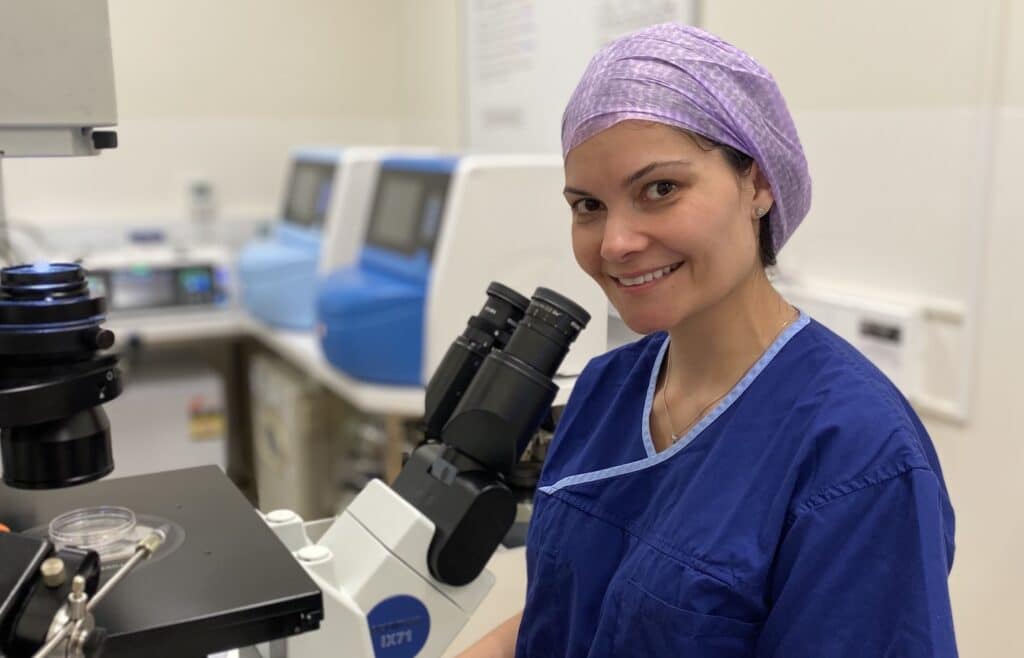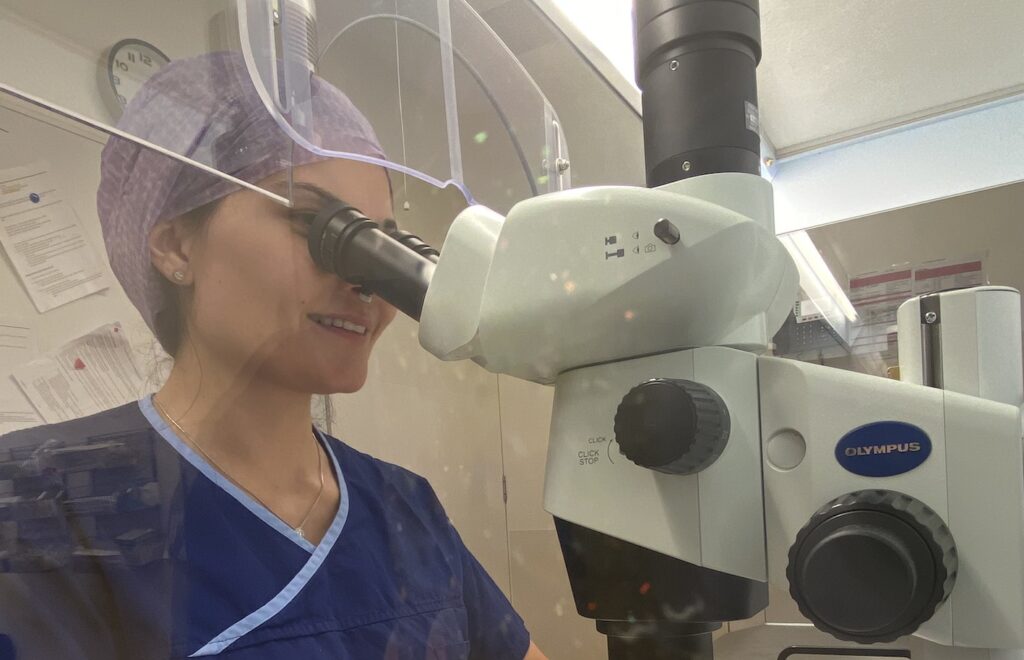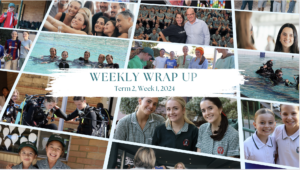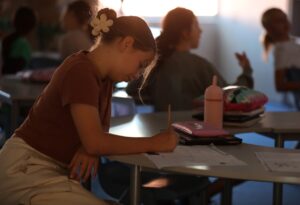Kristen Jones: Giving Hope

Kristen Jones (Class of 2006) has a really special job. She works with couples who need assistance to fall pregnant. Kristen shares her story with us this month and tells us about her job as an embryologist.
Tell us a bit about your time since leaving Santa Maria.
A few months after graduating Year 12, I started my undergrad in Biomedical Science at Notre Dame. I then got a job at the university as a laboratory technician setting up labs for the science and medicine students. I was able to work this job while doing a Masters of Reproductive Medicine remotely through UNSW before starting my career in Embryology. During this time, I met my husband Marc, and we married and have had two children. So I have been busy working and raising a family.
What is an embryologist, and what does your job involve?
An embryologist is a scientist that works in assisted reproduction. We split our time between the andrology (semen) lab and embryology lab. In the andrology lab we perform diagnostic tests to diagnose fertility issues, and we also process samples for a use in treatment. This includes samples that need to used for insemination or an IVF cycle. We also cryopreserve semen for people undergoing medical treatment such as chemotherapy or who work away and aren’t available during their partner’s ovulation.
Embryology lab is where the magic happens, though. This is where we collect the eggs from the patients having an egg collection. We inseminate the eggs and then look after the embryos until we can transfer one back into the uterus. If available, we also freeze surplus embryos and perform embryo warming when it’s time for a transfer.
Why did you decide to go into Reproductive Medicine?
I really wanted to become a forensic scientist and discovered that it’s very hard to get into in Perth, and I’d likely have to move over-east. During my biomed studies, I found out that an IVF laboratory was a possibility, and the second I heard that, I knew that was my calling. I have had multiple family members that required IVF to conceive, and I always found it fascinating.

What do you love most about your career?
I get to help someone through what is undoubtedly one of the most stressful times in their life. Infertility struggles are very difficult, and it’s awful thinking it may never happen and you may never have success. I get to be the one not only updating them through the process and helping them understand, but also the one looking after their future babies.
What challenges do you face in your job, and how do you manage those challenges?
Challenges in a lab environment range from busy theatre lists, time constraints, and the emotional toll of dealing with very sad situations. I have had to develop good time management skills as theatre lists can be quite stressful, and dealing with human eggs is very time sensitive. I have had coaching from our counsellors at work to learn how to speak with patients and also to cope myself when I am affected by very upset patients or poor outcomes.
What did you enjoy most about your time at Santa Maria?
The opportunities to try so many things, and the sense of community.
Were there any staff at the College that have impacted you as an adult personally or professionally?
Mr Sydney-Smith was an amazing biology teacher and really fostered my love for science. I had no idea what I wanted to do after Year 12, so my love for his class guided me to a science degree.
Do you have any advice for students?
I failed to realise during high school that grades aren’t the end of the world. It’s important students realise there are so many pathways or other ways to be successful than just getting top grades. I was never a top student. I never had amazing grades, and, to be perfectly honest, I struggled my way through high school. I was still able to apply myself and get a degree for a good job. I’ve seen many girls from my year at Santa Maria become extremely successful without being top students, and many of them didn’t even do ATAR or go to university.

The Power of Expectations in Shaping Student Success – Jennifer Oaten
Discover the transformative impact of expectations on student success. Learn how belief shapes outcomes in education and beyond.

Weekly Wrap Up: Term 2, Week 1, 2024
Term 2 has kicked off with a bang! We enjoyed the Year 11 Father-Daughter evening, celebrated Earth Day, and welcomed Dr. Mark Williams.

Inspiring Change: Earth Day 2024
Our Earth Day celebration this week was a powerful reminder of our collective responsibility to protect our planet for future generations.
- Featured
Author: Santa Maria College
Santa Maria College is a vibrant girls school with a growing local presence and reputation. Our Mission is to educate young Mercy women who act with courage and compassion to enrich our world. Santa Maria College is located in Attadale in Western Australia, 16 km from the Perth CBD. We offer a Catholic education for girls in Years 5 – 12 and have 1300 students, including 152 boarders.






